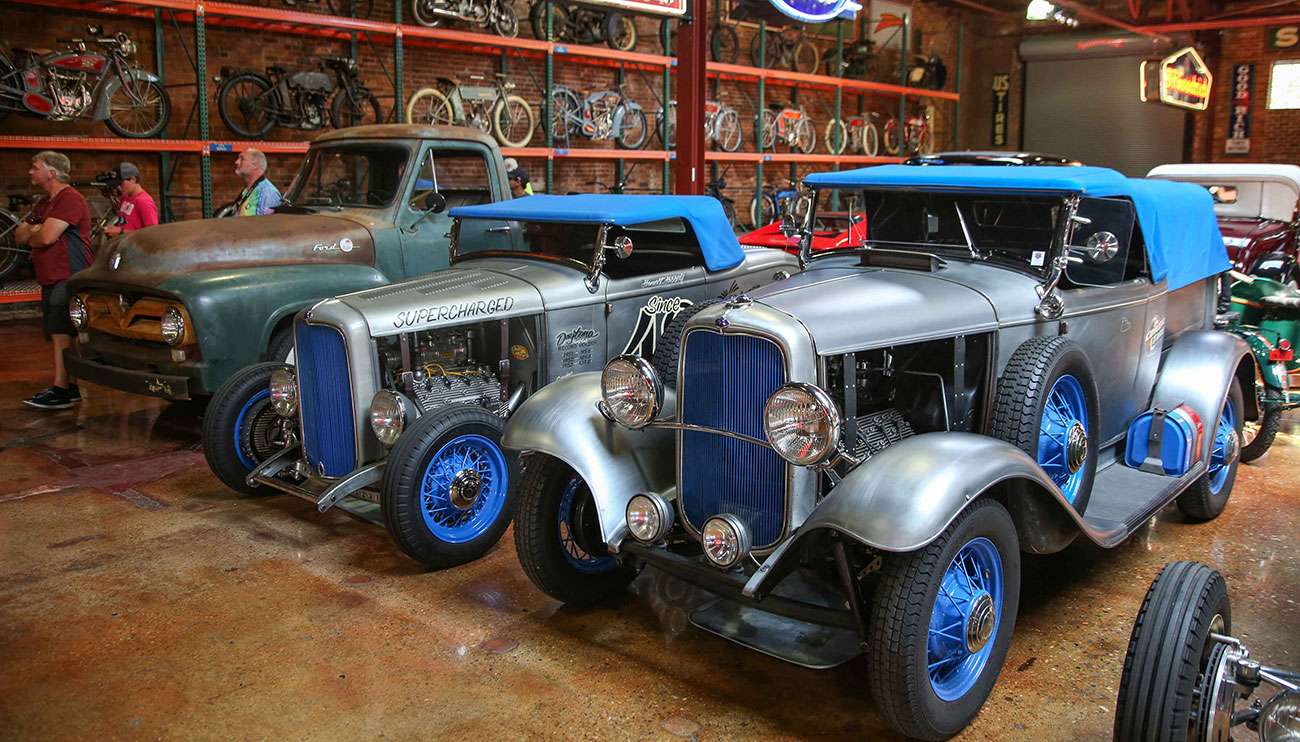
Coker tires deliver exceptional off-road conditions performance with their massive 36-inch diameter design built for challenging terrain. These tires offer surprising versatility despite their narrow appearance, requiring just a 4-inch suspension lift and minimal trimming on vehicles like the '78 Jeep J-10.
Off-road enthusiasts will find these tires excel where it matters most. Coker tires provide excellent grip on dry rock surfaces while their thick, durable sidewalls stand up to serious abuse. The strategic siping across all tread lugs delivers dependable traction on wet rocks and dirt, making them reliable performers across various conditions. We should note that some owners have experienced durability concerns, including whitewall separation issues after limited use.
Quality tires at an affordable price? Coker tires offer budget-friendly value at approximately $106 per tire, but the real question is whether they deliver the performance you need. We'll examine how these tires perform across different terrains, analyze their long-term durability, and provide the detailed information you need to decide if Coker tires are the right choice for your vehicle.

Image Source: Coker Tire
Harold Coker established Coker Tire in 1958, starting as a small tire and service center in Athens, Tennessee. The company moved to a larger Chattanooga facility in 1960, where it became the area's first major BFGoodrich dealership. Today, Coker Tire stands as the world's largest manufacturer of tires and wheels designed specifically for collector vehicles.
The company operates from two key locations: its headquarters in downtown Chattanooga's historic Southside district and a massive 100,000 square foot facility in City of Industry, California. Their antique tire division has grown remarkably since 1974, expanding from a single employee to more than 80 staff members.
Coker Tire produces all products in North America and backs them with a lifetime tread warranty. The company holds licensing agreements with major brands including Firestone, BFGoodrich, and U.S. Royal, allowing them to manufacture authentically branded tires using modern materials.
Ownership changed hands in 2018 when Irving Place Capital acquired Coker Tire. This transition followed Corky Coker's 2014 retirement after leading the company for four decades as Harold's son. The acquisition united Coker Group executives under President and CEO Wade Kawasaki with Irving Place Capital.

Bias-ply Coker tires create a distinctly different driving experience compared to modern radials. Road users typically maintain inflation pressure around 25 psi. These tires balance easily and provide smooth highway performance despite their vintage design, though they exhibit some wandering at higher speeds. Like most bias-ply construction, they develop flat spots during cool mornings that disappear after a mile or two of driving.
Off-road performance tells a different story entirely. Experienced drivers air down to 9-10 psi for maximum traction. The STA Super Lugs grip effectively on dry rock surfaces while their thick sidewalls withstand tough conditions. The siping on tread lugs maintains traction even in wet conditions. When aired down to approximately 11 psi, the sidewalls absorb impacts from large rocks and ridges at moderate trail speeds.
For those considering a purchase, visit Performance Plus Tire for an extensive selection of Coker products.
Coker's radial options deliver enhanced road performance benefits. Radial construction features cords running straight across (90 degrees from the tire's centerline) with steel belting beneath the tread for additional strength. This design allows more flexibility, helping the tire conform better to road surfaces.
Customer experiences with Coker tires reveal both strengths and significant concerns. Many customers praise Coker's customer service team for "bending over backwards" to resolve minor problems. The whitewalls for classic vehicles like '59 Buicks receive consistent compliments for their sharp appearance. Coker also offers practical solutions like FlatStoppers to prevent flat spotting during storage.
Quality control issues present ongoing challenges for many buyers. Some owners struggle with tires that won't balance properly, requiring nearly 11oz of weight. Others report receiving tires that are "not round", while whitewall areas may "bubble" or delaminate even with limited mileage.
One documented case shows the extent of these problems: a customer needed 19 replacement tires in just 18 months, with Coker acknowledging manufacturing defects yet declining to cover mounting costs. Industry experts recommend replacing tires after 6-10 years regardless of tread condition.
Looking for Coker options? Performance Plus Tire carries an extensive selection to choose from. Coker tires excel at delivering authentic aesthetics for restoration projects, though alternatives like Diamond Back may deserve consideration depending on your specific requirements according to collector car enthusiasts.
Coker tires deliver a unique combination of vintage aesthetics and functionality that appeals to classic car enthusiasts. Their exceptional off-road capability and thick sidewalls make them solid performers in challenging terrain, particularly when aired down to 9-10 psi. However, quality control issues including delamination and balancing problems represent genuine concerns that potential buyers should consider.
Classic car owners will find Coker remains a popular choice thanks to authentic reproductions and partnerships with iconic brands like Firestone and BFGoodrich. The company has filled an important niche for collector vehicles. Potential buyers should weigh these advantages against the durability issues that appear consistently in customer feedback.
Should you choose Coker tires? The answer depends on your specific requirements. Show car owners and limited-use classic vehicle enthusiasts will likely find them acceptable, while those needing daily reliability might want to consider alternatives. Before making your final decision, the extensive selection at Performance Plus Tire can help you compare options and find the right match for your vehicle.
Coker tires offer reasonable value at their price point, though buyers should maintain realistic expectations about longevity and performance. These tires excel at creating visually accurate reproductions of classic designs, but you may need to accept trade-offs compared to modern performance standards. This balance makes Coker an interesting option for classic vehicle owners who want to maintain authenticity while keeping their vehicles functional.
Coker tires offer a specialized solution for classic car enthusiasts, balancing vintage authentics with modern functionality, though with notable trade-offs in quality consistency.
• Coker excels in off-road performance - Their 36-inch tires with thick sidewalls grip effectively on rocks and dirt when aired down to 9-10 psi
• Quality control issues are a significant concern - Multiple customers report balancing problems, delamination, and manufacturing defects requiring frequent replacements
• Perfect for show cars, questionable for daily driving - Authentic vintage reproductions with Firestone/BFGoodrich licensing make them ideal for collectors prioritizing period-correct appearance
• Budget-friendly pricing comes with compromises - At around $106 per tire, they're affordable but may require accepting trade-offs in modern performance standards
• Bias-ply construction creates unique driving characteristics - Expect flat spotting on cool mornings, highway wandering, and a distinctly different feel compared to modern radial tires
While Coker fills an important niche for classic vehicle restoration, buyers should carefully consider whether authenticity outweighs the reported durability concerns for their specific use case.
Yes, Coker Tire Company manufactures their products in North America. They are headquartered in Chattanooga, Tennessee, and have secured licensing agreements with iconic brands like Firestone, BFGoodrich, and U.S. Royal to produce authentically branded tires using modern materials.
Coker tires excel in off-road environments. They provide effective grip on dry rock surfaces and feature thick, durable sidewalls that withstand abuse. The tires also have siping on all tread lugs, enhancing traction on wet rocks and dirt. For optimal off-road performance, experienced users often air down to 9-10 psi.
The lifespan of Coker tires can vary, but industry guidelines suggest replacing tires after 6 to 10 years of service. For collector vehicles that aren't driven frequently, the tire might expire before the tread wears out. It's important to regularly inspect tires, regardless of tread condition, especially on vintage or rarely-driven vehicles.
Coker bias-ply tires offer a distinctly different driving experience compared to modern radials. They provide a smooth ride on highways but may exhibit some wandering at higher speeds. These tires can develop flat spots on cool mornings, which typically resolve after a short drive. While they offer vintage authenticity, they may not match the road performance of modern radial tires.
Coker tires are praised for their authentic vintage appearance, making them ideal for classic car restorations. They offer good off-road performance and are relatively affordable. However, some users have reported quality control issues, including balancing problems and premature wear. While they excel in creating visually accurate reproductions of classic tires, buyers may need to accept some trade-offs in terms of modern performance standards.